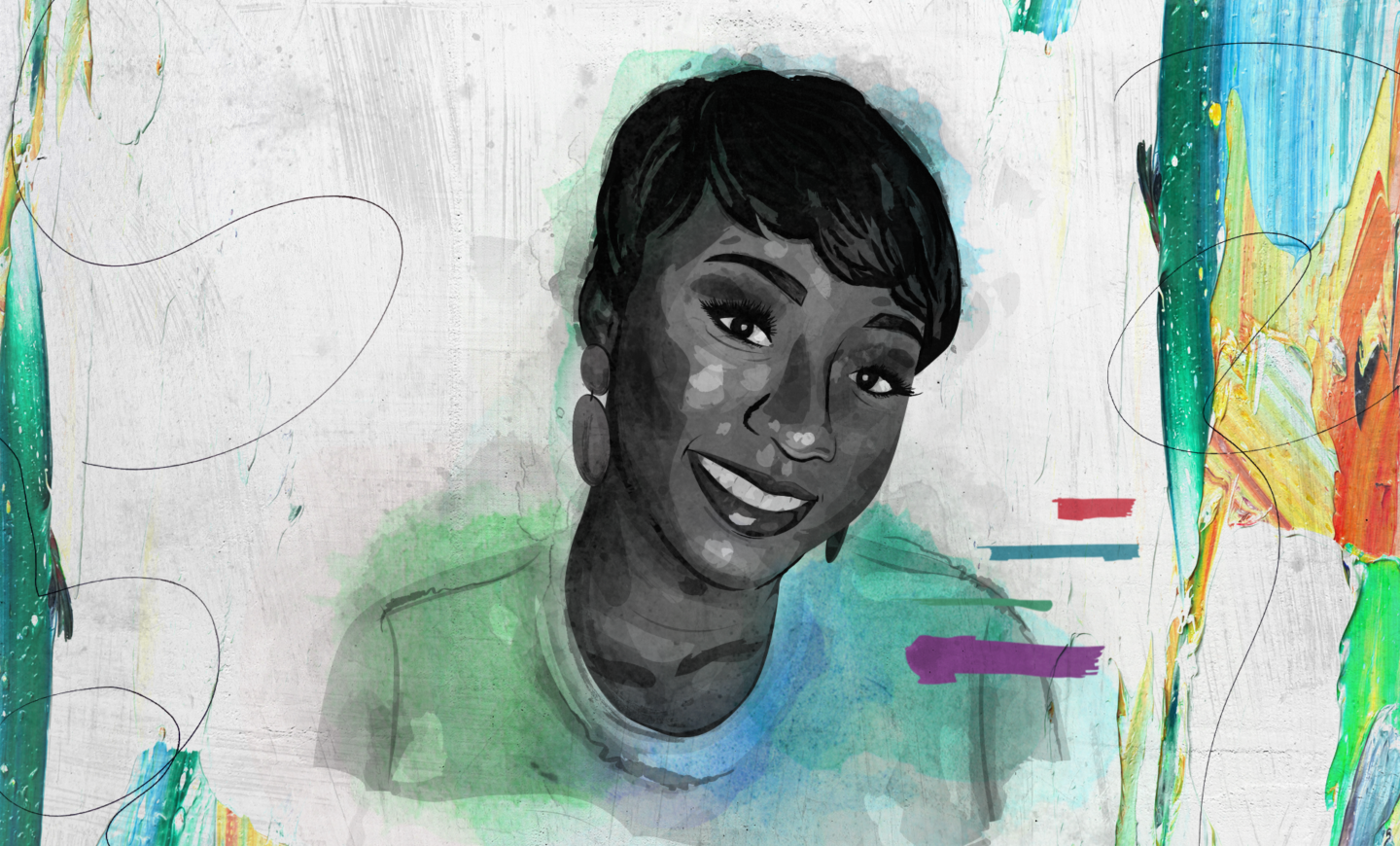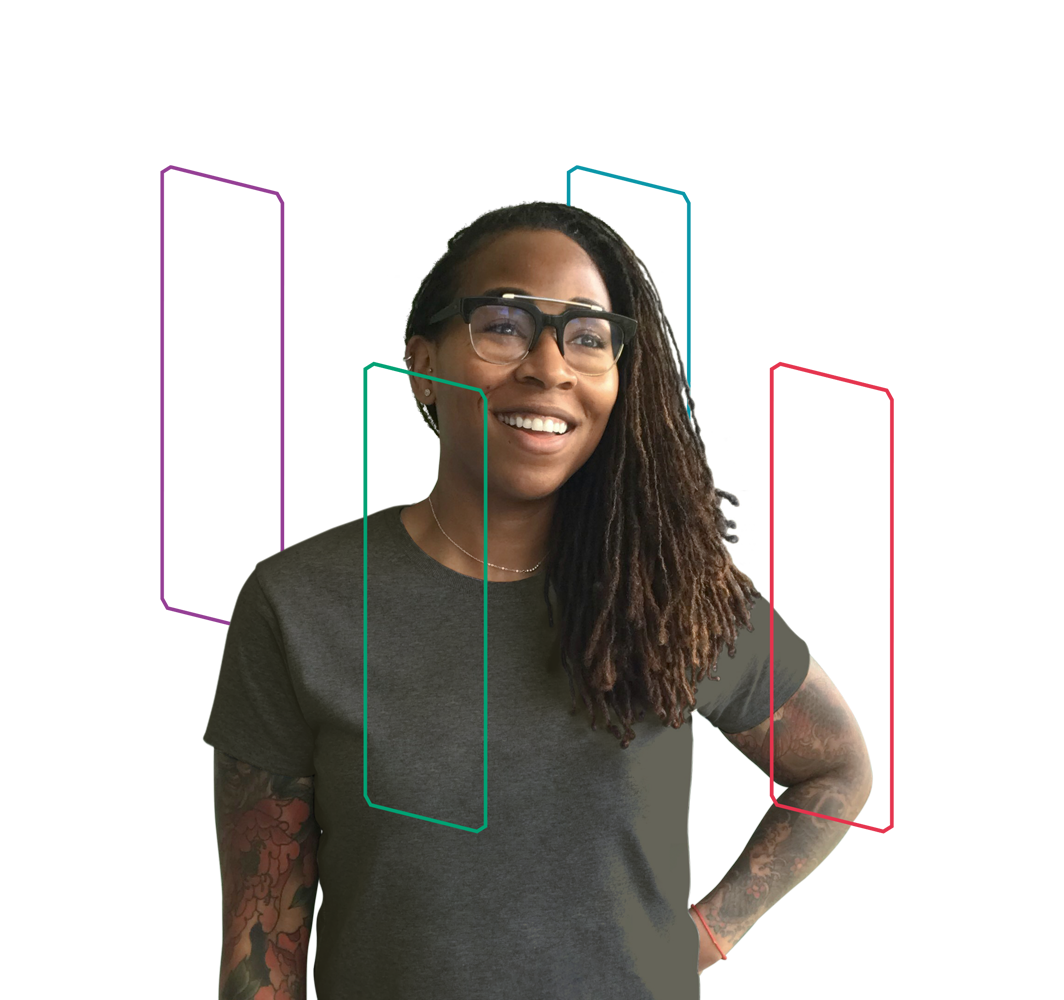Our Spotlight series highlights a new nurse from the SHIFT audience each month. We ask the same set of questions each time — but, of course, we get all kinds of answers. The individual stories and surprises in these conversations make us laugh, cry and feel proud. Over time, we hope to both discover what makes each of you unique and understand what ties all of us together as nurses.
It almost seems Shon was fated to be a nurse. At first, the job wasn’t even on her radar, and then all it took was one application for her to enter the field. And ever since her first job, she’s been hooked. Having grown up in a small town of about 300 people in South Carolina, Shon has a community-first mindset and a passion for being a trusted voice and advocate for her neighbors. She’s seen firsthand the health disparities that affect small Southern towns. Both in her role as a travel nurse (follow her journey here) and as a community advocate, Shon is calling for more health literacy to close health equity gaps — and we’re in full support!
Why did you decide to go into nursing?
If someone would have told me in undergrad that I would be a nurse, then I would have laughed. I’m not really hands-on; that’s not me. Put me in front of a computer, crunch some numbers, yes. After graduating with my first degree in public health, I had a wake-up call looking for jobs and trying to decide what I wanted to do. I was working for Starbucks and just looking at my next steps, and I had to sit down and really think about how I wanted to impact the world. I had all the prerequisites for nursing school, and I applied to one school on a whim and got in with a scholarship. And I thought, “If they can believe in me, and even financially assist me, then maybe this is something that I really need to take seriously.”
Once I got in, I just fell in love with connecting with people and being able to help people. And honestly, once I got into nursing, it really was a different perception from what I thought nursing was — we’re social workers, a friend, everything wrapped into one, versus one-dimensional.
There is so much more compassion and feelings involved.
Tell us about a time when it was really hard to be a nurse or a time that made you question being a nurse.
Definitely my first nursing job. Honestly, I didn’t pick it for any particular reason. But it just felt like home, and I thought, “I’m going to go where the vibes are.”
It was oncology, and they were using all this different terminology about the types of patients that they had, and it did not register until I actually saw it. It was mainly ear, nose and throat (ENT) patients and gynecology patients. The ENT patients had visible cancers on their face, and I remember seeing that for the first time and thinking, “What the heck did I sign up for?” It took some time adjusting. How can I take care of these patients? Especially when they were unable to express themselves. The hospital [where] I was stationed at the time took patients from all over the world, so there was also a language barrier.
We would get these critical cases, and sometimes the patients [that had had a tracheostomy] didn’t know how to read or write, so we [were] trying to figure out what they were saying, and they were getting frustrated and anxious. Those were the moments where I felt that no one in nursing school prepared me for dealing with the psychological effects of these diseases and the burden on patients like this. Those were moments where I really had to take a step back and really place myself in the patients’ shoes.
It was extremely hard because they had taken away our mental health liaison, which is extremely important. So we definitely had to have compassion and patience. As a nurse, you want to multitask, but we had to prioritize and take one step at a time. We had to stop and point at things, and it slows you down, but this is the priority right now. So being focused on being patient and just showing some love.
Who inspires you?
My family, for sure. I am a first-generation nurse in my family. I am from a very small town, probably less than 300 people. I’m talking one gas station! So there are health disparities, wide gaps in education and just [in] health literacy, period. I feel like I am the go-to person when something happens. So that inspires me to keep going and to just be the best I can be in all aspects of life, to show the younger generation in my life that you can do it. My mom was a single parent, and she was always pushing me to do anything. With that, I excelled with my village and her village of people — people who haven’t done what I was doing but just believed that I could.
Describe your shift BFF. Why are they your best friend on the job?
I have so many friends in nursing world. My first shift BFF, Stephanie, who is still my shift BFF, is a CNA from my very first job. We hit it off so quickly even though we are in different worlds. Just her welcoming spirit when I first got on the floor, getting me down and dirty in the trenches, the simple things. You really don’t get the hands-on stuff in nursing school. I really learned so much from her, even just as a person. We just laugh at work and have fun.
Tell us something about your specialty in nursing that other nurses may not know.
As an oncology nurse, there’s a misconception that it’s always sad. But it’s not always sad. You get to see those moments where a patient gets news of remission, or maybe their lab levels that were low came up, and you just get this expression in their faces of progress.
You do get moments where cancer came back, or of diagnosis. You see patients and their families in really intimate moments. I think during COVID-19, it was extremely hard because the visitation policies changed, so [patients] didn’t have family members there to hold their hand. So you are there and providing those first words of comfort, and you just naturally find the words to comfort people. You help your patients at every step.
Describe your community’s health. What is your hope for your community’s health in the future?
Being in the South along the Bible Belt, if a pastor doesn’t say it, it’s not law. So definitely the approach is different, and you have to start in those trusted spaces, like the church and small community groups. Different churches here have health initiatives to tackle diabetes and high blood pressure because those are the things that really harm us here in the South, based on our diets.
I would really like to see a change in health literacy. We have a health center here, but the way that some staff interact is not culturally sensitive. They don’t break down the jargon enough. You have people like me, who are trusted in the community, that others will come to because I break down that jargon. I would like to see more culturally sensitive physicians and health care providers in small urban areas where health literacy isn’t where it needs to be. Black and Brown people, we aren’t trusting, so I would definitely like to see more people of color in the health care field. But even that goes far back to access to education and opportunities.
What is your vision for the future of nursing?
Definitely for nurses to treat each other as human. We get so caught up with the letters behind our names and ego, pride and experience. Because we can really be snappy to one another, and the competitiveness can take over. But the patient is the goal here, girlfriend, and we should be nicer to each other. I would like to see more extending the grace that you would want to get from someone. If I’m not educated on something, don’t scold me — teach me. That education might save someone’s life.
Describe one of your best shifts ever.
My first job was so fun because everyone knew each other. Traveling is so different because I’m just a transplant — like a ninja behind the scenes. But my first staff position, every holiday we would have a theme and get dressed up in different costumes and get the patients engaged. Those shifts were always the most fun because you got to see the patients having fun despite being in the hospital.
Learn more about Shon
Simply Shon Instagram
These links are not endorsed by SHIFT and the views expressed within are their own.
If you’re interested in sharing your story for the SHIFT Talker Spotlight, please reach out here or email us at hello@shiftnursing.com.


